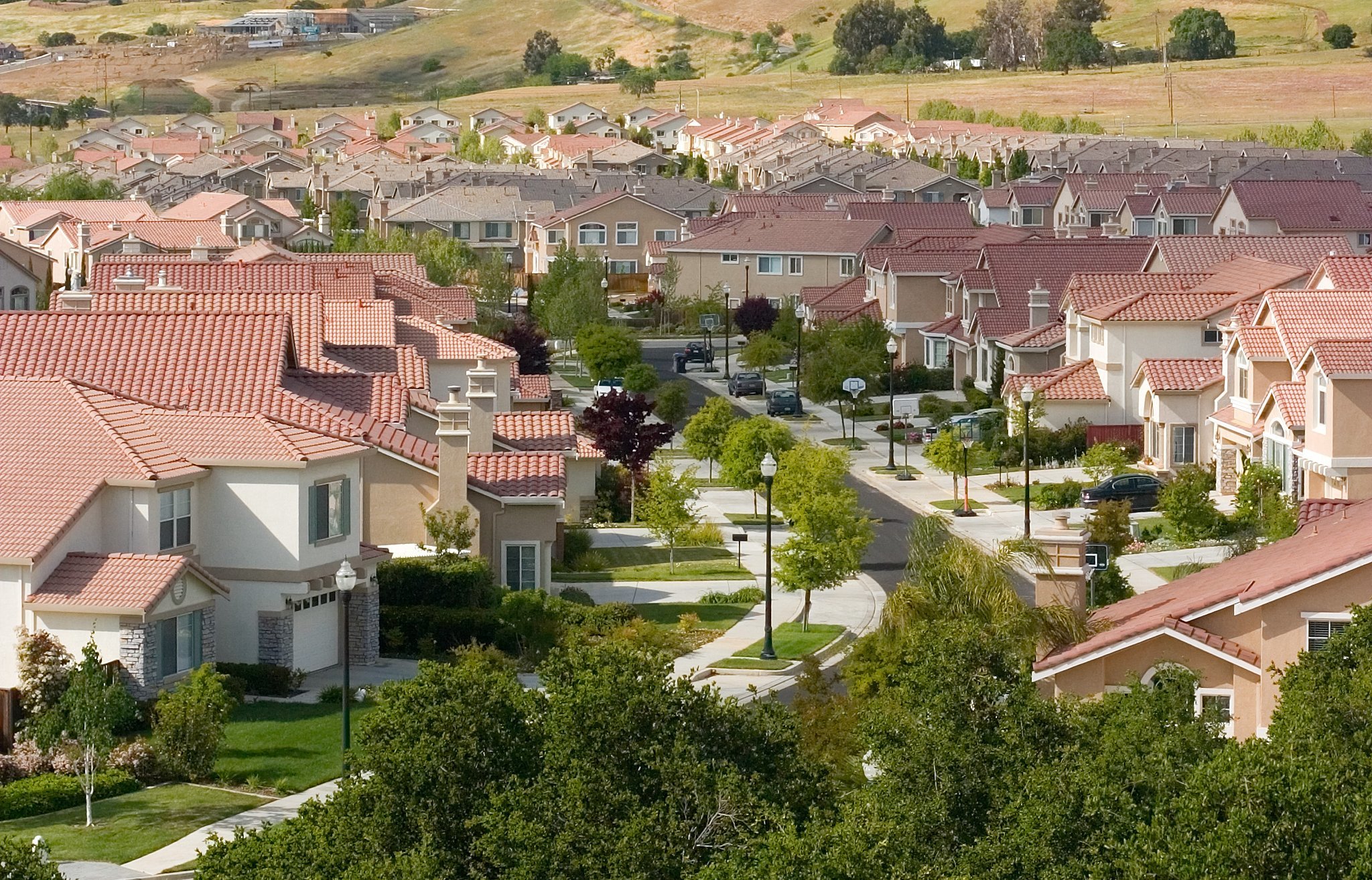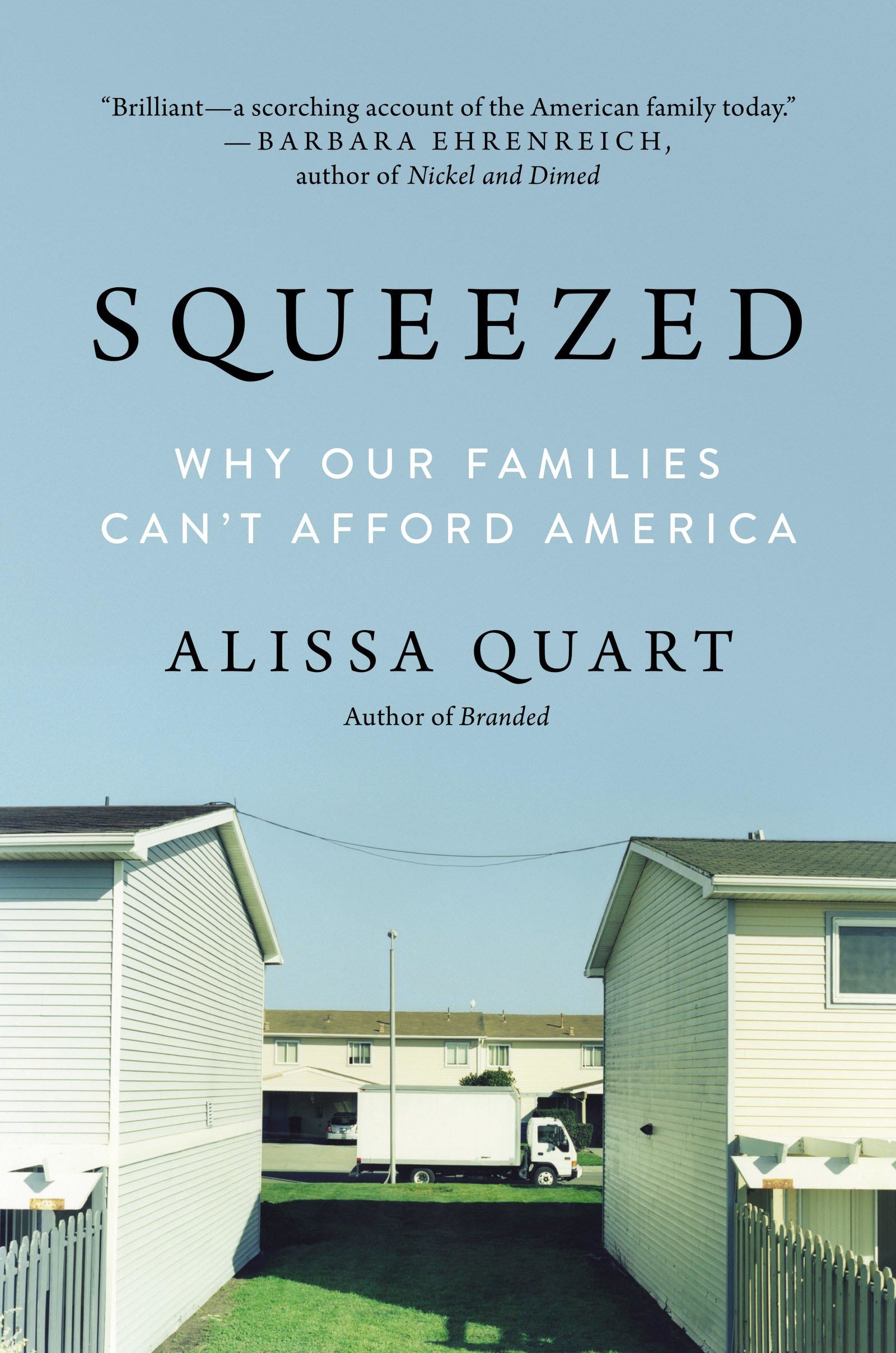It wasn’t supposed to be like this.
The children of America’s white-collar middle class viewed life from their green lawns and tidy urban flats as a field of opportunity. Blessed with quality schools, seaside vacations and sleepover camp, they just knew that the American dream was theirs for the taking if they hit the books, picked a thoughtful and fulfilling career, and just, well, showed up.
Until it wasn’t.
While they were playing Twister and imagining a bright future, someone apparently decided that they didn’t really matter. Clouds began to gather—a “dark shimmer of constantly shifting precariousness,” as journalist Alissa Quart describes in her timely new book “Squeezed: Why Our Families Can’t Afford America.”
The things these kids considered their birthright—reputable colleges, secure careers, and attractive residences—were no longer waiting for them in adulthood.
Today, with their incomes flat or falling, these Americans scramble to maintain a semblance of what their parents enjoyed. They are moving from being dominant to being dominated. From acting to acted upon. Trained to be educators, lawyers, librarians, and accountants, they do work they can’t stand to support families they rarely see. Petrified of being pushed aside by robots, they rankle to see financial titans and tech gurus flaunting their obscene wealth at every turn.
Headlines gush of a humming economy, but it doesn’t feel like a party to them—and they’ve seen enough to know who will be holding the bag when the next bubble bursts.
The “Middle Precariats,” as Quart terms them, are suffering death by a thousand degradations. Their new reality: You will not do as well as your parents. Life is a struggle to keep up. Even if you achieve something, you will live in fear of losing it. America is not your land: it belongs to the ultra-rich.
Much of Quart’s book highlights the mirror image of the downwardly mobile middle class Trump voters from economically strained regions like the Midwest who helped throw a monkey wrench into politics-as-usual. In her tour of American frustration, she talks to urbanites who lean liberal and didn’t expect to find themselves drowning in debt and disappointment. Like the falling-behind Trump voters, these people sense their status ripped away, their hopes dashed.
If climbing up the ladder of success is the great American story, slipping down it is the quintessential tragedy. It’s hard not to take it personally: the ranks of the Middle Precariat are filled with shame.
They are somebodies turning into nobodies.
And there signs that they are starting to revolt. If they do, they could make their own mark on the country’s political landscape.
The Broken Bourgeoisie
Quart’s book takes a sobering look at the newly unstable bourgeoisie, illustrating what happens when America’s off-the-rails inequality blasts over those who always believed they would end up winners.
There’s the Virginia accountant who forks over nearly 90% of her take home pay on care for her three kids; the Chicago adjunct professor with the disabled child who makes less than $24,000 a year; and the California business reporter who once focused on the financial hardships of others and now faces unemployment herself.
There are Uber-driving teachers and law school grads reviewing documents for $20 an hour—or less. Ivy Leaguers who live on food stamps.
Lacking unions, church communities and nearby close relatives to support them, the Middle Precariats are isolated and stranded. Their labor has sputtered into sporadic contingency: they make do with short-term contracts or shift work. (Despite the much-trumpeted low unemployment rate, the New York Times reports that jobs are often subpar, featuring little stability and security). Once upon a time, only the working poor took second jobs to stay afloat. Now the Middle Precariat has joined them.
Quart documents the desperate measures taken by people trying to keep up appearances, relying on 24/7 “extreme day care” to accommodate unpredictable schedules or cobbling together co-living arrangements to cut household costs. They strain to provide things like academic tutors and sports activities for their kids who must compete with the children of the wealthy. Deep down, they know that they probably can’t pass down the cultural and social class they once took for granted.
Quart cites a litany of grim statistics that measure the quality of their lives, like the fact that a middle-class existence is now 30% more expensive than it was twenty years ago, a period in which the price of health care and the cost of a four-year degree at a public college nearly doubled.
Squeezed is especially detailed on the plight of the female Middle Precariat, like those who have the effrontery to procreate or grow older. With the extra burdens of care work, pregnancy discrimination, inadequate family leave, and wage disparities, (not to mention sexual harassment, a subject not covered), women get double squeezed. For women of color, often lacking intergenerational wealth to ease the pain, make that a triple squeeze.
The Middle Precariat in middle age is not a pretty sight: without union protection or a reliable safety net they endure lost jobs, dwindled savings, and shattered identities. In one of the saddest chapters, Quart describes how the pluckiest try reinvent themselves in their 40s or 50s, enrolling in professional courses and certification programs that promise another shot at security, only to find that they’ve been scammed by greedy college marketers and deceptive self-help mavens who leave them more desperate than before.
Quart notes that even those making decent salaries in the United States now see themselves barred from the club of power and wealth. They may have illiquid assets like houses and retirement accounts, but they still see themselves as financially struggling. Earning $100,000 sounds marvelous until you’ve forked over half to housing and 30% to childcare. Each day is one bit of bad luck away from disaster.
“The spectacular success of the 0.1 percent, a tiny portion of society, shows just how stranded, stagnant, and impotent the current social system has made the middle class—even the 10 percent who are upper-middle class,” Quart writes.
Quart knows that the problems of those who seem relatively privileged compared many may not garner immediate sympathy. But she rightly notes that their stresses are a barometer for the concentration of extreme wealth in some American cities and the widening chasm between the very wealthy and everybody else.
The Dual Economy
The donor-fed establishment of both political parties could or would not see this coming, but some prescient economists have been sounding the alarm.
In his 2016 book The Vanishing Middle Class, MIT economist Peter Temin detailed how the U.S. has been breaking up into a “dual economy” over the last several decades, moving toward a model that is structured economically and politically more like a developing nation—a far cry from the post-war period when the American middle class thrived.
In dual economies, the rich and the rest part ways as the once-solid middle class begins to disappear. People are divided into separate worlds in the kinds of jobs they hold, the schools their kids attend, their health care, transportation, housing, and social networks—you name it. The tickets out of the bottom sector, like a diploma from a first-rate university, grow scarce. The people of the two realms become strangers.
French economist Thomas Picketty provided a stark formula for what happens capitalism is left unregulated in his 2015 bestseller, Capital in the Twenty-First Century. It goes like this: when the rate of return on the investments of the wealthy exceeds the rate of growth in the overall economy, the rich get exponentially richer while everyone becomes poorer. In more sensible times, like the decades following WWII, that rule was mitigated by an American government that forced the rich pay their share of taxes, curbed the worst predations of businesses, and saw to it that roads, bridges, public transit, and schools were built and maintained.
But that’s all a fading memory. Under the influence of political money, politicians no longer seek a unified economy and society where the middle class can flourish. As Quart observes, the U.S. is the richest and also the most unequal country in the world, featuring the largest wealth inequality gap of the two hundred countries in the Global Wealth Report of 2015.
Who is to Blame?
Over and over, the people Quart interviews tend to blame themselves for their situation—if only they’d chosen a different career, lived in another city, maybe things wouldn’t have turned out this way. Sometimes they point the finger at robots and automation, though they arguably have much more to fear from the wealthy humans who own the robots.
But some are waking up to the fact it is the wealthy and their purchased politicians who have systematically and deliberately stripped them of power. Deprivations like paltry employee rights, inadequate childcare, ridiculously expensive health care, and non-existent retirement security didn’t just happen. Abstract words like deregulation and globalization become concrete: somebody actually did this to you by promoting policies that leave you high and dry.
As Quart indicates, understanding this is the first step to a change of consciousness, and her book is part of this shift.
Out of this consciousness, many individuals and organizations are working furiously and sometimes ingeniously to alter the negative trajectory of the Middle Precariat. Quart outlines proposals and developments like small-scale debt consolidation, student debt forgiveness, adequately subsidized day care, and non-traditional unions that could help.
America also has a track record of broad, fundamental solutions that have already proven to work. Universal basic income may sound attractive, but we already have a program that could improve the lot of the middle class if expanded: Social Security.
Right now, a worker stops having to pay Social Security tax on any earnings beyond $128,400—a number that is unreasonably low because the rich wish to keep it so. Just by raising that cap, we could the lower the retirement age so that Americans in their 60s would not have greet customers at Walmart. More opportunities would open up to younger workers.
The Middle Precariat could be forgiven for suspecting that the overlords of Silicon Valley may have something other than altruism in mind when they tout universal basic income. Epic tax evaders, they stand to benefit from pushing the responsibility for their low-paid workers and the inadequate safety net and public services that they helped create onto ordinary taxpayers.
Beyond basic income lies a basic fact: the American wealthy do not pay their share in taxes. In fact, American workers pay twice as much in taxes as wealthy investors. That’s why infrastructure crumbles, schools deteriorate, and sane health care and childcare are not available.
Most Americans realize that inequality has to be challenged through the tax code: a 2017 Gallup poll shows that the majority think that the wealthy and corporations don’t pay enough. Politicians, of course, ignore this to please their donors.
And so the Middle Precariat, like the Trump voters, is getting fed up with them.
From Depressed to Energized
Quart astutely points out that income inequality is being written into the law of the land. Funded the efforts of billionaires like the Koch brothers, politicians have altered laws and constitutions across the country to cement the dual economy through everything from restricting voting rights to defunding public education.
Several Middle Precariats in Squeezed have turned to independent or renegade candidates like Bernie Sanders who offer broad, substantial programs like debt-free college and universal health care that address the fissures in their lives. They are listening to candidates who are not afraid to say that markets should work for human beings, not the other way around.
If Donald Trump’s political rise “can be understood as an expression of the gulf between middle-class citizens and America’s ruling classes,” as Quart observes, then the recent surge of non-establishment Democratic candidates, especially democratic socialists, may be the next phase of a middle class revolt.
Recent surprise victories in Pennsylvania and New York in the Democratic primaries by female candidates openly embracing democratic socialism, including Alexandria Ocasio-Cortez, who bested Democratic stalwart Joe Crowley by running for Congress on a platform of free Medicare and public college tuition for all, may not be the blip that establishment Democrats hope. In New York, democratic socialist Julia Salazar is looking to unseat long-time state senator Martin Dilan. Actress Cynthia Nixon, running against New York Governor Andrew Cuomo, has just proclaimed herself a democratic socialist and promises to raise taxes on the rich and boost funding for public schools. Michelle Goldberg recently announced in the New York Times that “The Millenial Socialists are Coming,” indicating the intense dislike of traditional politics in urban centers. These young people do not think of things like debt-free college or paid family leave as radical: they see it done elsewhere in the world and don’t accept that it can’t be done in America.
Historically, the more affluent end of the middle class tends to identify with and support the wealthy. After all, they might join their ranks one day. But when this dream dies, the formerly secure may decide to throw their lot in with the rest of the Precariats. That’s when you have the chance for a real mass movement for change.
Of course, people have to recognize their common circumstances and fates. The urban denizens of New York and San Francisco have to see what they have in common with middle class Trump voters from the Rust Belt, as well as working class Americans and everybody else who is not ultra-rich.
If the growing ranks of Precariats can work together, maybe it won’t take a natural catastrophe or a war or violent social upheaval to change America’s unsustainable course of gross inequality. Because eventually, something has to give.







